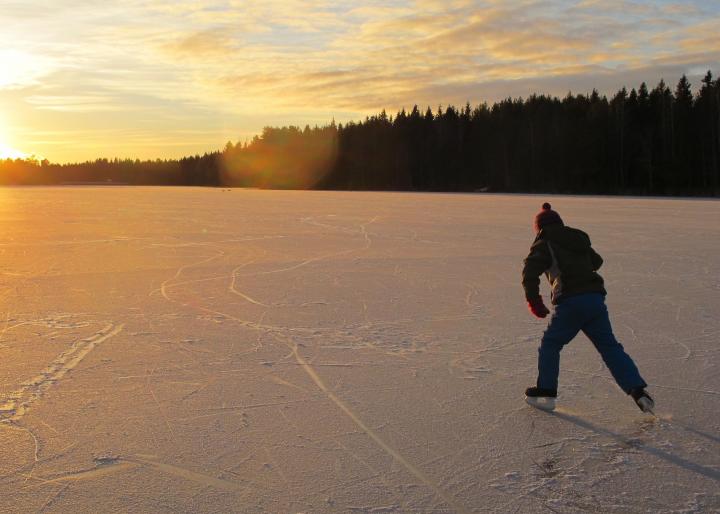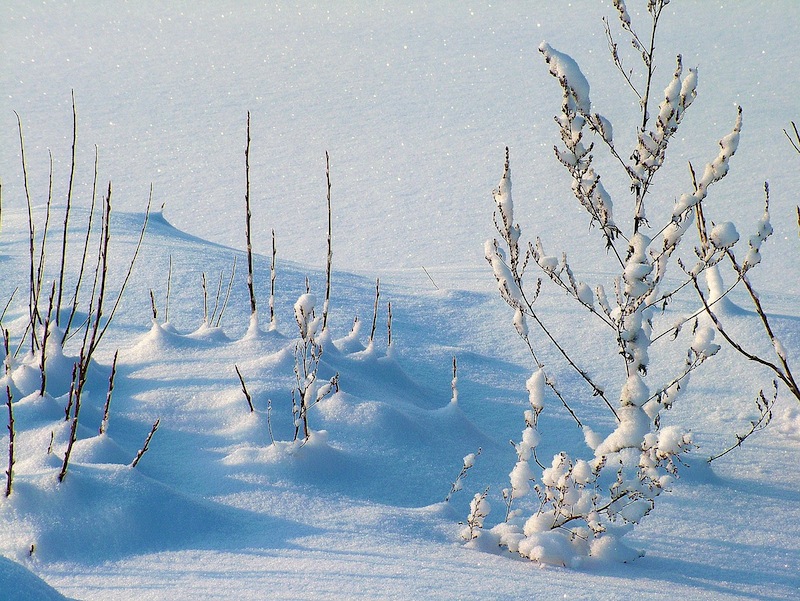Can cold weather give you a cold? Do you lose most of your body heat through your head? Is a cup of hot coffee the best way to warm up? We answer these questions and bust common cold weather myths!
Humans are warm-blooded and must maintain an inner core temperature of about 98.6°F (37°C). We primarily warm ourselves by exercising and eating, and in winter, the challenge is to keep the warmth we create as long as possible or lose as little of it as possible. The ways we avoid getting cold may surprise you!
10 Myths About Cold Weather
1. Cold Weather Causes the Common Cold
Nope. You catch colds from viruses, not from cold temperatures. But because cold temperatures keep people indoors in close quarters, viruses spread more easily.
Cold weather can weaken your immune system, making you an easier target. But in the end, it’s viruses (not cold weather) that are making you sick. Here are some other ways to avoid getting colds.

2. Do You Lose Most of Your Body Heat Through Your Head?
No, you don’t. Thermophysiologist Gordon Giesbrecht of the University of Manitoba says, “Where your body loses heat is closely related to surface area, and the head has only about 9 percent of the body’s surface area.” As the temperature decreases, the blood vessels in your extremities constrict. Yet only 10% of your body heat is being lost through your head.
That said, if you are all bundled up, you lose more body heat through the top of an uncovered head, so perhaps you could say, “Mom was right,” after all.
3. What Should You Do If Your Fingers or Toes Are Cold?
You should rub your fingers and toes when they get chilly, right? Nope. Wiggle them instead. If exposed skin (including that of your face and ears) becomes cold, cover it with a warm hand until it feels better. Giesbrecht says, “Never accept numbness. It is a sign that tissue is already very cold and potentially about to freeze.” If there’s a chance you may have frostbite, don’t rub the frostbite area, especially not with snow. Rubbing will cause tissue damage. Do not try to warm frostbitten skin until you’re free of the danger of it freezing again. Refreezing increases tissue damage and can cause you more pain and suffering.

3. Is a Cup of Coffee or a Sip of Brandy a Good Way to Warm Up?
Nope. Caffeine and alcohol may actually speed up heat loss. According to Weather.gov, caffeine can cause your blood vessels to constrict and prevent your hands and feet from warming properly, and alcohol can reduce shivering, which is something your body does to help keep you warm!
Instead of caffeine and alcohol, drink warm water or a warm, sweet, nonalcoholic, non-caffeinated beverage to help warm the body.
5. If You Fall Through Ice and Into Water, You Will Die of Hypothermia Right Away
It depends; you may have about an hour to survive this kind of cold shock. Understanding what’s happening and not panicking is critical to your survival.
Remember the 1-10-1 rule: one minute, ten minutes, one hour.
- You have 1 minute to get control of your breathing (a common reaction to severe cold is to panic and start hyperventilating).
- You have 10 minutes to perform any meaningful movement, during which you can do your best to get out of the water.
- If you can’t get out on your own, you have 1 hour before hypothermia will render you unconscious. So, when you can no longer use your arms and legs effectively, adopt a position in the water that conserves body heat (curl up, keep limbs close) until help arrives.
Check out our windchill temperature chart for more information on surviving hypothermia and frostbite.

6. Dehydration is not a Danger When You Exercise in Cold Weather
False. You can sweat anytime when you exercise; in cold weather, you also lose more water through your breath than in warmer temperatures. Remember playing in the snow as a child and being so thirsty when you came inside? Thank the cold weather for that!
So, remember that dehydration is dangerous in the cold; it hinders the body’s ability to produce heat.
7. If You’re Stranded and Thirsty, You Should Eat Snow
Bad idea. Eating snow or sucking on ice will lower your body temperature. It can also lead to internal injuries. If you have no water, try melting ice in a plastic bag between your clothing layers (not directly against the skin). Ice melts more quickly than the same volume of snow and yields more water.

8. If I’m Cold, You Must Be Cold!
Nope. Age, gender, fitness level, acclimatization—these and other factors determine when you “feel” cold. It’s been proven, for example, that women generally feel cold before men do, possibly because they have less heat-generating ability but a relatively similar amount of heat-losing skin. In addition, women’s blood vessels contract sooner due to cold than men’s, so women’s skin feels colder more quickly. So next time your spouse complains about the thermostat, consider the physiological differences at play.
9. Does Shivering Make You Colder or Warmer? Why Do We Shiver?
It may not feel good, but shivering means that your body is trying to warm up, and that’s good. Shivering happens involuntarily—it’s one of the ways (along with an increased metabolism and breathing rate) that your body automatically responds to heat loss that threatens to lower your core temperature. In fact, skeletal muscle contractions—shivering—can triple your body’s heat production.
10. Does Cold Always Feel the Same?
Actually, it doesn’t. Have you ever noticed how 10 degrees (or any cool temperature) feels colder in the fall than it does in the spring? This is because our bodies are used to dealing with much colder temperatures and react more quickly, so we lose heat more slowly, and don’t “feel” as cold.
People who live in cold climates are typically used to this cold weather, so maybe they don’t feel it as much! Find out what happened on some extra chilly days in Canada.
Learn More
Can it ever be too cold for snow? Find out here!
Aren’t some of these facts, uh, chilling? Share your thoughts in the comments below!














Comments